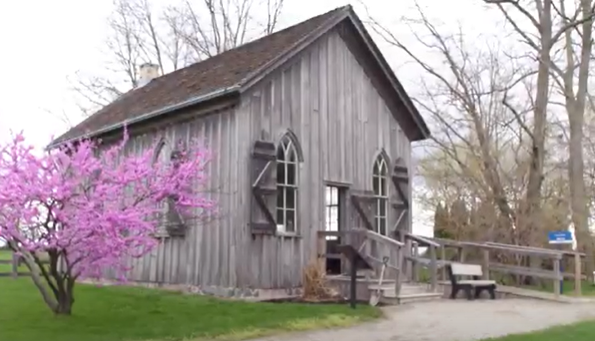A historic site southwest of London, Ont., dedicated to preserving a significant part of Canada’s Black history has changed its name in an effort to reclaim the legacy of Josiah Henson, an abolitionist, preacher and conductor of the Underground Railroad.

Uncle Tom’s Cabin Historic Site, located in Dresden, is now the Josiah Henson Museum of African-Canadian History.
The Ontario Heritage Trust unveiled the new name Saturday and says it’s a positive step forward as the museum moves away from the negative connotation associated with the term “Uncle Tom” and provides further recognition to an important figure in the abolition movement in the U.S. and Canada.
“Henson was a remarkable leader who embodied bravery and perseverance,” said museum manager Steven Cook. “During his lifetime, Henson expressed a desire to reclaim his name and legacy. We are honoured to help make this a reality.”
Cook says the name Uncle Tom goes back to 1852 when the famous book, Uncle Tom’s Cabin, was published.

Get breaking National news
The book, written by Harriet Beecher Stowe, told the story of what life was like on a plantation in the southern U.S.
Henson was born into slavery in Maryland and was enslaved for 30 years before finally escaping to Canada through the Underground Railroad. He “started a settlement here in little old Dresden that was one of the very first-ever manual labour schools that was ever started in our country,” Cook said.
In his role as conductor, Henson rescued 118 enslaved people.
The Josiah Henson Museum of African-Canadian History is open Tuesdays to Saturdays from 10 a.m. to 3 p.m.
— With files from 980 CFPL’s Mike Stubbs and Andrew Graham
- Tumbler Ridge B.C. mass shooting: What we know about the victims
- There are changes coming to Tim Hortons menus and stores soon
- RCMP respond to reports of guns at schools in several Alberta communities
- ‘We now have to figure out how to live life without her’: Mother of Tumbler Ridge shooting victim speaks












Comments
Want to discuss? Please read our Commenting Policy first.